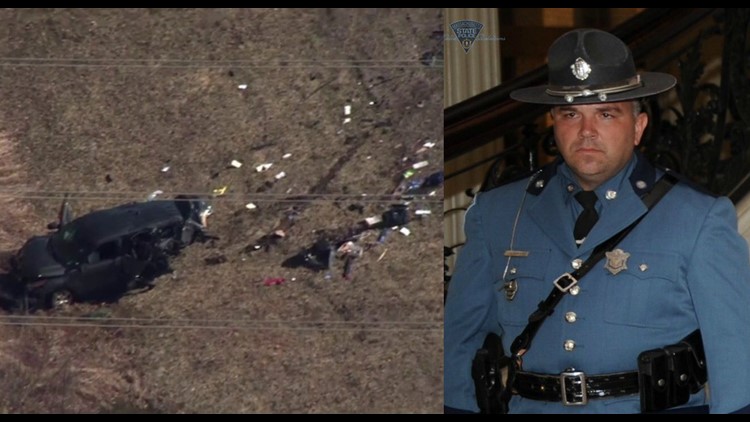MIDDLETOWN -- A motorcade carrying the body of Massachusetts State Trooper Thomas Clardy made its way to a funeral home in his home town on Thursday as police officers, firefighters, and other emergency workers lined their route and paid their respects as the procession passed by. The family of the 44-year-old Marine Corps veteran and father of six is planning a funeral for Tuesday in Hudson, Massachusetts.
Clardy, 44, was killed on Wednesday in a crash on the westbound side of the Massachusetts Turnpike in Charlton, Massachusetts, just over the Connecticut border near Woodstock. Clardy had pulled an SUV over on the highway and was in the right-hand breakdown lane when a driver speeding in the left lane of the highway crossed all three lanes and crashed into Clardy's cruiser.
His death is yet another reminder to those in law enforcement that when they leave for work every day they don’t know if they’ll make it home.
“It's a reminder to us that that can happen to any one of us at any time,” said Trooper Kelly Grant, spokesperson for the Connecticut State Police.
Grant says this crash reminded troopers in Connecticut to the Enfield crash that killed Trooper Kenneth Hall back in 2010, and brings to light the dangers law enforcement officers face on the roads every day.
“It's not just us. You have to remember there are people that are on the side of the highway that are involved in crashes, or their vehicles are broken down. So they do have the potential to be hit and killed also,” said Trooper Grant.
This danger is why the Connecticut State Police held a two-week campaign earlier this month focusing on the move over law. Drivers are required to slow down or move over, if they can do so safely, for emergency vehicles, highway maintenance crews and tow trucks on the side of the highway.
“Help us. We’re here to help you,” said Trooper Grant. “That’s where we work. We work in that shoulder and we do need you to move over.”
Connecticut troopers released a series of public service announcements and issued 479 tickets during that campaign hoping to drive this message home.
Trooper Grant said, “Clearly we don't speak about it enough. Maybe it's something that people don't know about. Maybe they don't understand it. But it's very important. It saves lives.”



